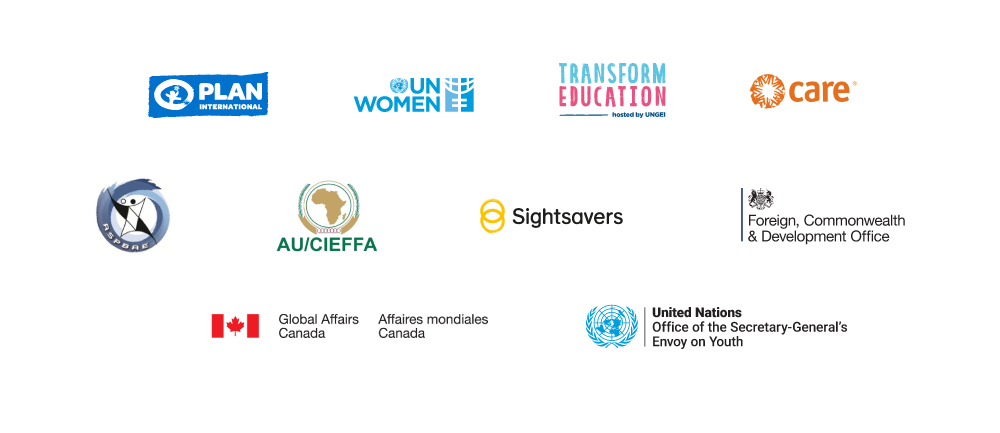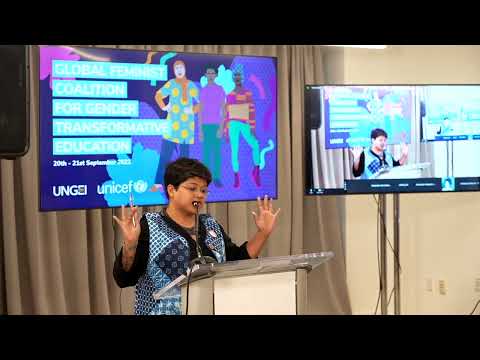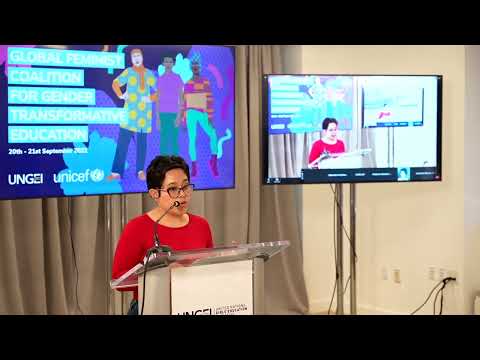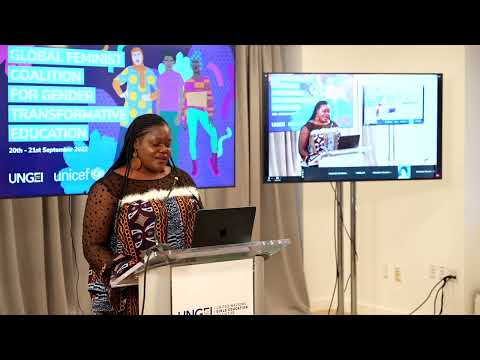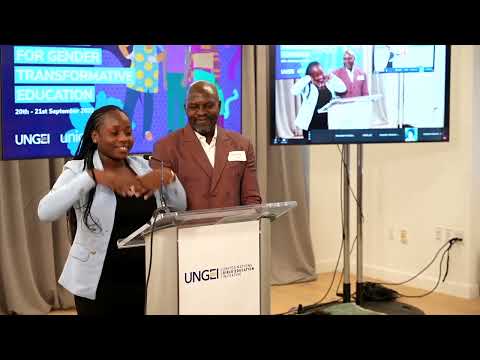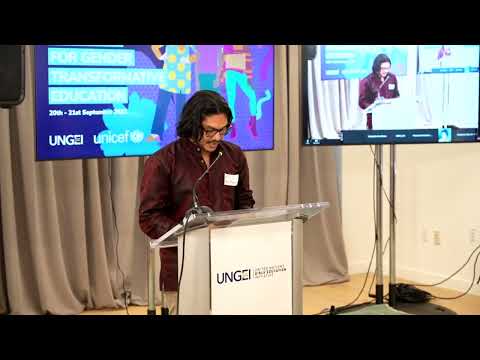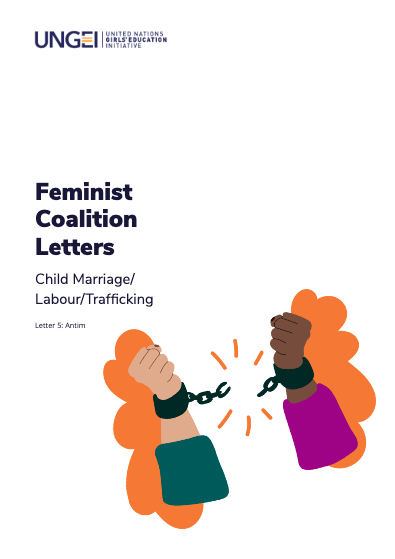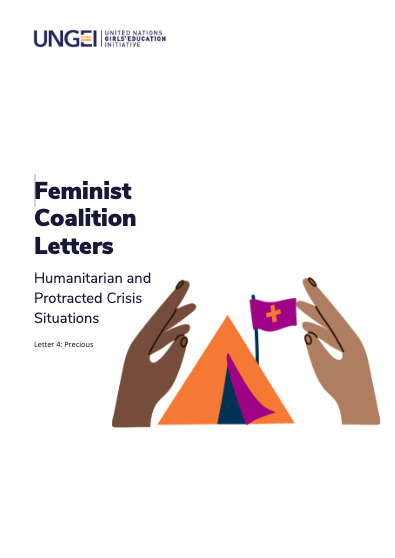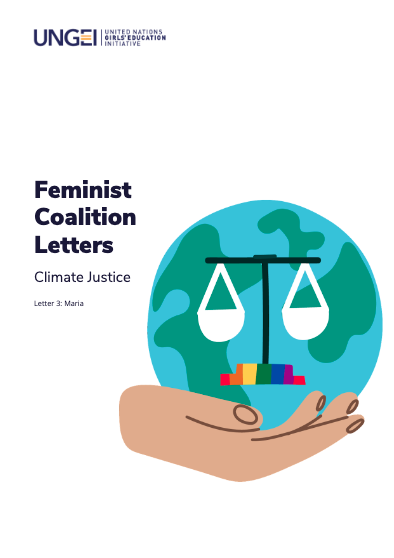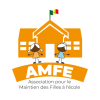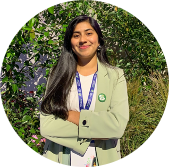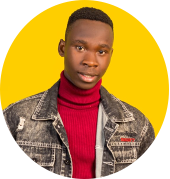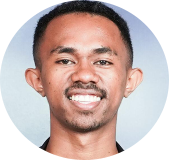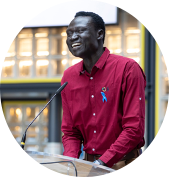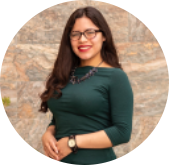Global Feminist Coalition for Gender Transformative Education
20 - 21 September 2022
The UNGEI partnership, hosted by UNICEF, is honoured to announce the inaugural Global Feminist Coalition for Gender Transformative Education on the 20th and 21st of September, 2022 in New York. The Coalition is a first-of-its-kind coming together of feminist civil society organizations (CSOs) and young activists from 25+ countries around the world. This by-invitation-only event will harness the power of collective action to make a unified impact alongside and for the Transformig Education Summit (TES) and will help develop UNGEI’s 2023-27 Strategic Planning.
Influencing Global Decision Making
Youth and feminist leadership is critical in transforming education systems for greater equality and social justice. This coalition is fired by our belief that your voices, knowledge and experience are critical to global decisions on funding and policy.
Feminist coalition members bring a wide range of expertise and show a clear commitment to gender transformative education, inclusive and intersectional action, and feminist movement building.
The agenda includes national and regional answers to questions like: what does gender parity look like on the ground? What are girls’, boys’ and LGBTQI children’s top vulnerabilities post COVID? What are promising examples of school-based work to address harmful gender norms? Participants will present recommendations for education ministers, the UN system and donors.
Feminist leadership is the key to advancing gender transformative education (SDGs 4 and 5), and dismantling systems of oppression and discrimination. This thematically and geographically diverse group of feminist activists and CSOs will ensure that the voices of those who are most affected are at the center of funding and policy discussions.
The Feminist Education Coalition is a trailblazing coalition of 18 national and grassroots, feminist CSOs and 11 young feminist activists working to advance gender equality in and through education.
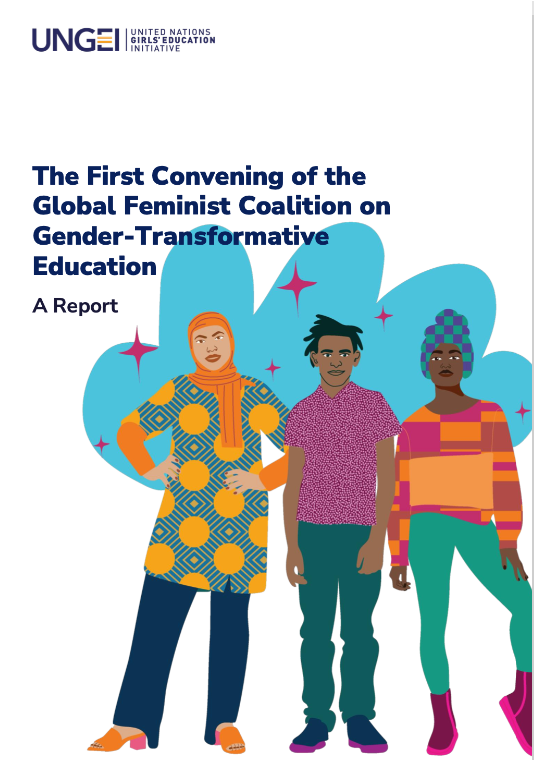
The First Convening of the Global Feminist Coalition on Gender-Transformative Education
A Report
In 2022 UNGEI undertook an unprecedented project: the formation of the Global Feminist Coalition for Gender Transformative Education; a coalition made up of impactful feminist civil society organisations and young feminist activists. When the idea of this coalition came about, it did not have a name but it did have a mission and that was to create a space that not only honoured the work of national and local CSOs and young feminist activists, but a space that learned from their expertise and evidence as well.
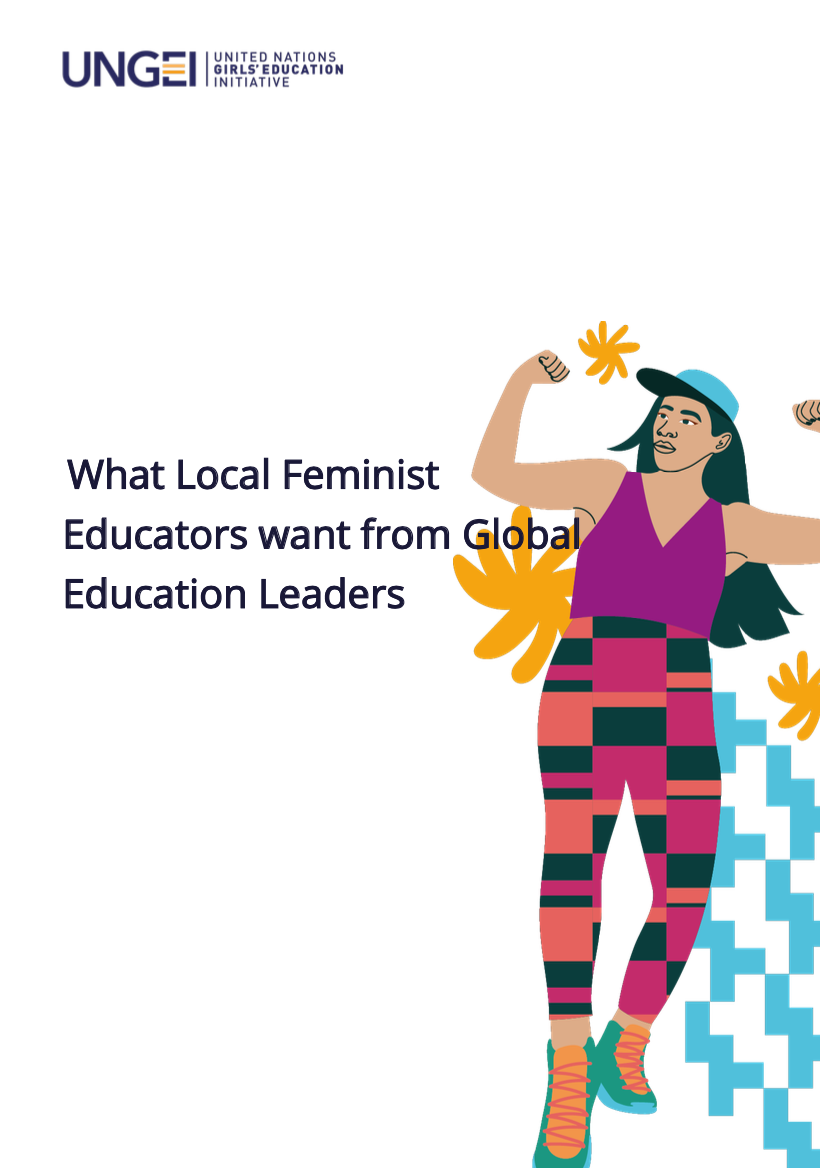
What Local Feminist Educators want from Global Education Leaders
Prior to the the Global Feminist Coalition for Gender Transformative Education coming together in September 2022, six regional groups put forward their asks and analysed gendered vulnerabilities and made recommendations for Ministries of Education, UN agencies, and donors.
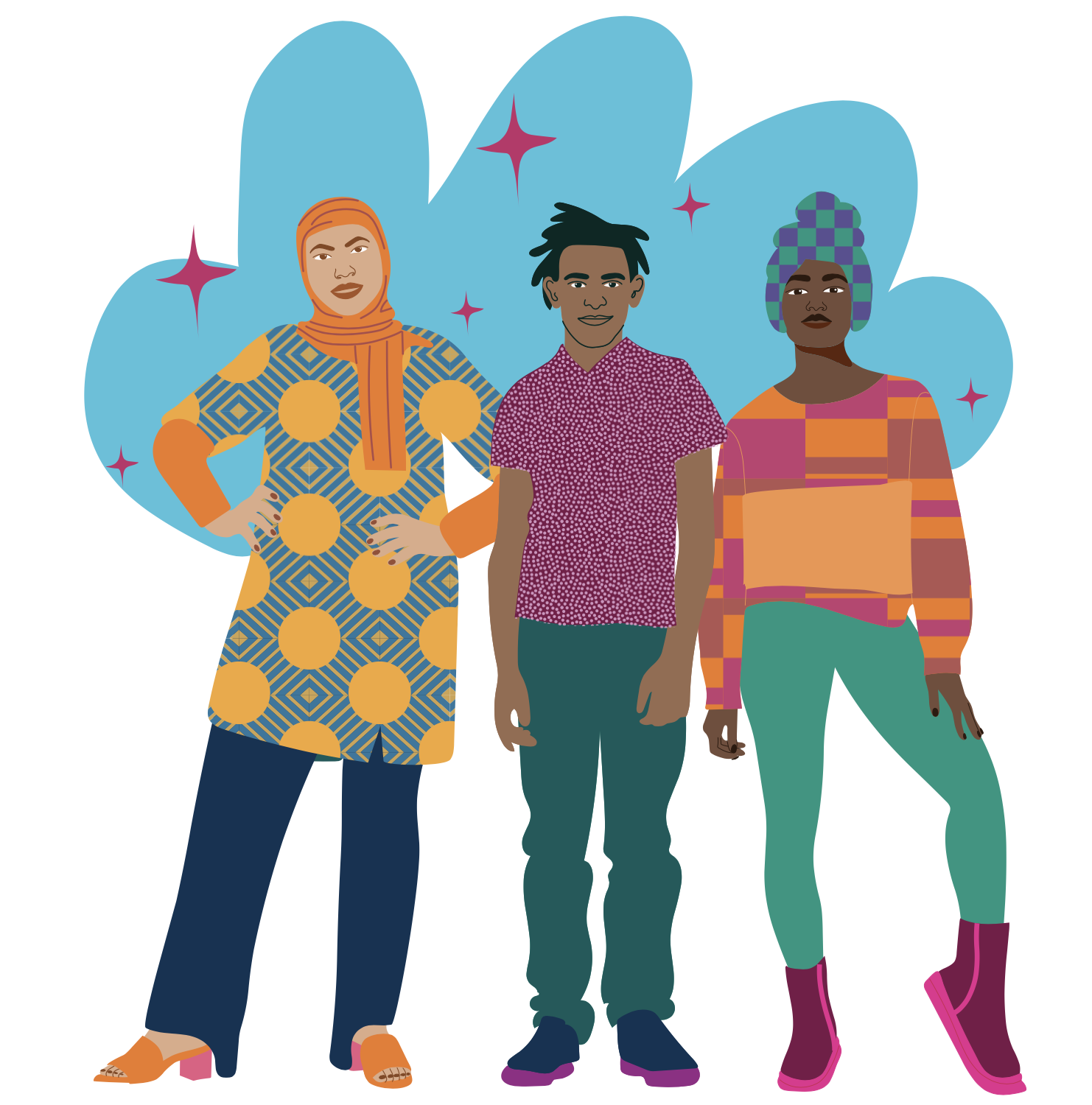
Who is the coalition?
Coalition members were identified through an open call process which received more than 300 applications. Each national CSO has directly reached at least 5,000 children with a focus on girls and progressing gender equality in the last five years. Members are actively working to advance gender equality among children with direct interface with education systems at a community or national level; whether through SHRH, gender-based violence, etc.
The work of the members of the feminist education coalition is informed by an intersectional feminist lens and understanding of privilege and vulnerability vis-a-vis disability, sexual orientation, gender identity and race/ethnic/linguistic status.
The members of the Feminist Education Coalition reach more than 370,000 children globally and work within various themes and contexts. These CSOs and activists are spearheading widespread meaningful change in their communities and have a track record of proven impact. Their invaluable grassroots experiences will shape the convening and the future landscape of gender transformative education.
Selected CSOs
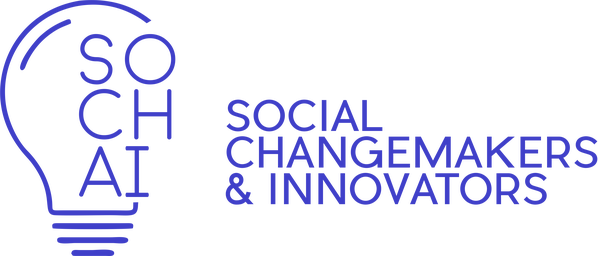 |
1. SOCHAI Network, Nepal, supports women, children and girls to reach their full potential in life by improving their intergenerational well-being through community engagement and youth leadership. They reach over 6000 out of school girls and mothers. |
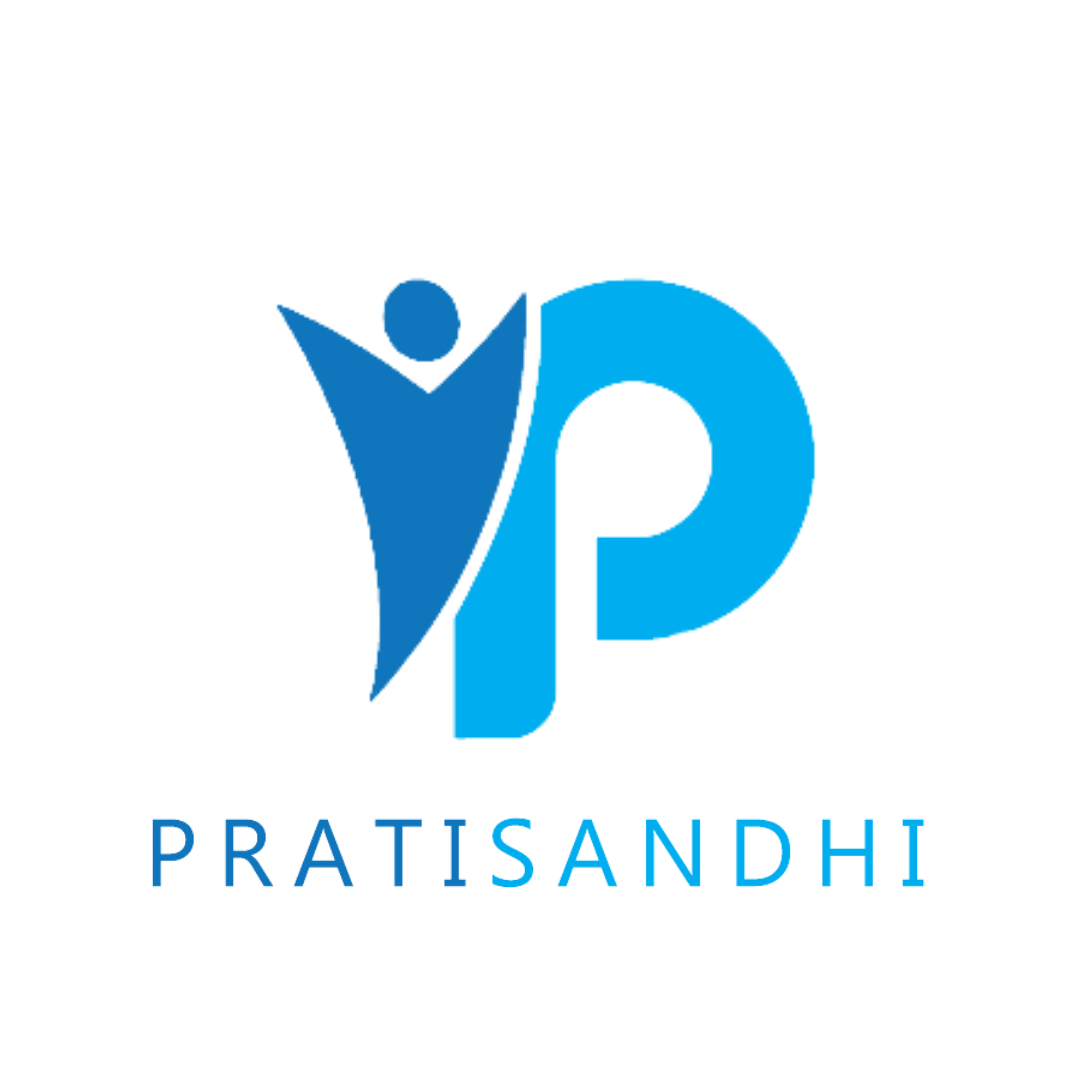 |
2. Pratisandhi Foundation, India, seeks to make judgement-free and medically-accurate sexuality education accessible for adolescents and young adults across India. We want to empower the youth to make informed decisions about their sexual health without fear. They have reached over 30,000 people. |
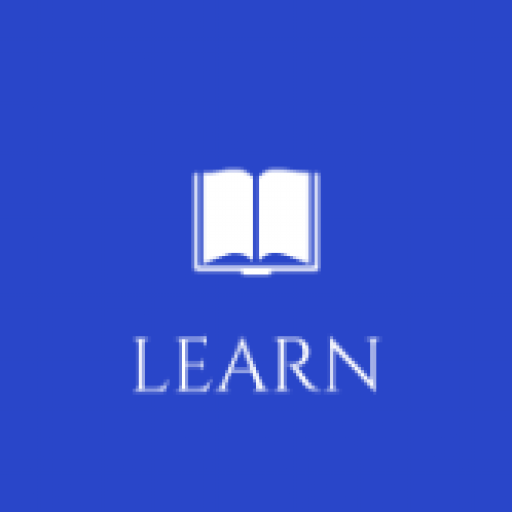 |
3. LEARN Afghanistan, Afghanistan, seeks the provision of quality education, healthcare to children through innovation and zero hunger through smart agricultural development and innovation. They have reached over 7,000 people. |
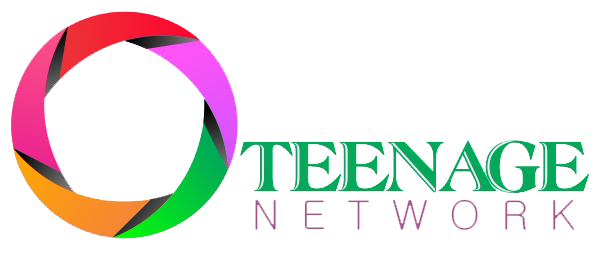 |
4. Teenage Network, Nigeria, seeks to facilitate access to quality education and health for adolescents, especially girls as key drivers of sustainable development. They have reached more than 3,000 girls. |
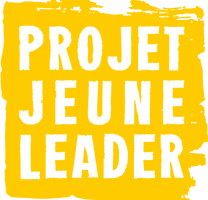 |
5. Projet Jeune Leader, Madagascar, harnesses the power of comprehensive sexuality education to transform schools and communities in Madagascar, enabling youth to reach their full potential. They have reached over 30,000 children. |
 |
6. Amplify Girls, Kenya, Rwanda, Tanzania, Uganda, supports CDOs to lead and collectively work towards improving outcomes for adolescent girls – based on the solutions they identify as best for their communities. They reach over 5,000 girls. |
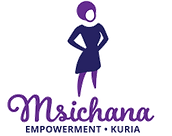 |
7. Msichana Empowerment Kuria, Kenya, utilizes girl-centered strategies to tackle socio-economic, cultural & environmental barriers to the development of girls. They have reached over 30,000 girls. |
 |
8. NYAKA, Uganda, works with communities to nurture and protect children so they can learn, grow, and thrive. They have reached over 80,000 girls. |
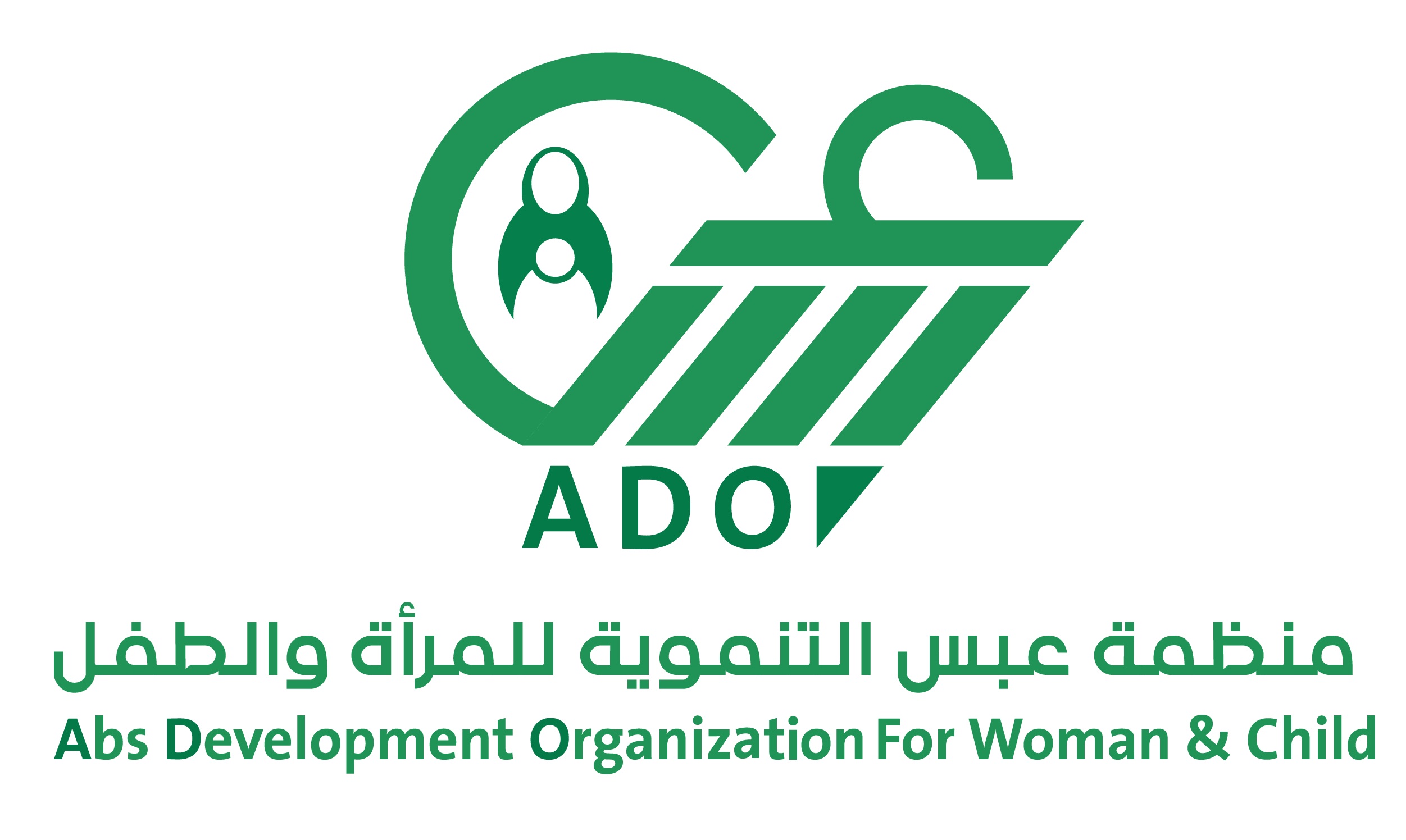 |
9. Abs Development Organisation for Woman and Child, Yemen, works with women, children, youths, and minorities to provide innovative and sustainable solutions in responding to emergencies, deliver protection and care services, support the educational process and empower women. They have reached over 4,000 families. |
|
|
10. Educate!, Uganda, tackles youth unemployment by partnering with youth, schools and governments to design and deliver solutions that equip young people in Africa with the skills to attain further education, overcome gender inequities, start businesses, get jobs, and drive development in their communities. They have reached over 200,000 youth since their inception. |
|
|
11. AMFE Coalition, Senegal, is a grassroots organisation that reaches over 3000 students a year. AMFE’s work assures that schools are safe by addressing the social conditions that impede women's progress by: working to eradicate all forms of GBV (FGM, sexual assault, child marriage, early pregnancy), promoting SRH education and facilitating vocational training. |
 |
12. Geledes, Brazil, is a civil society organization that stands in defense of women and black people because it understands that these two social segments suffer from disadvantages and discrimination in accessing social opportunities due to the racism and sexism prevailing in Brazilian society. |
| 13. Brac, Bangladesh, empowers people and communities in situations of poverty, illiteracy, disease and social injustice. | |
 |
14. Naba’a, Lebanon, raises awareness among children about the rights they should have, and gives them the skills, materials and abilities to stand up for those rights. They have reached over 30,000 children. |
 |
15. Aahung, Pakistan, aims to improve the Sexual and Reproductive Health and Rights (SRHR) of men, women, and adolescents across Pakistan. They have reached over 5,000 children directly and over 700,000 indirect beneficiaries through social media. |
 |
16. Visionaria, Peru, is a comprehensive teacher training and support program for secondary schools in the Cusco region of Peru. The Program includes teaching strategies, mentorship support, and team-based project activities. |
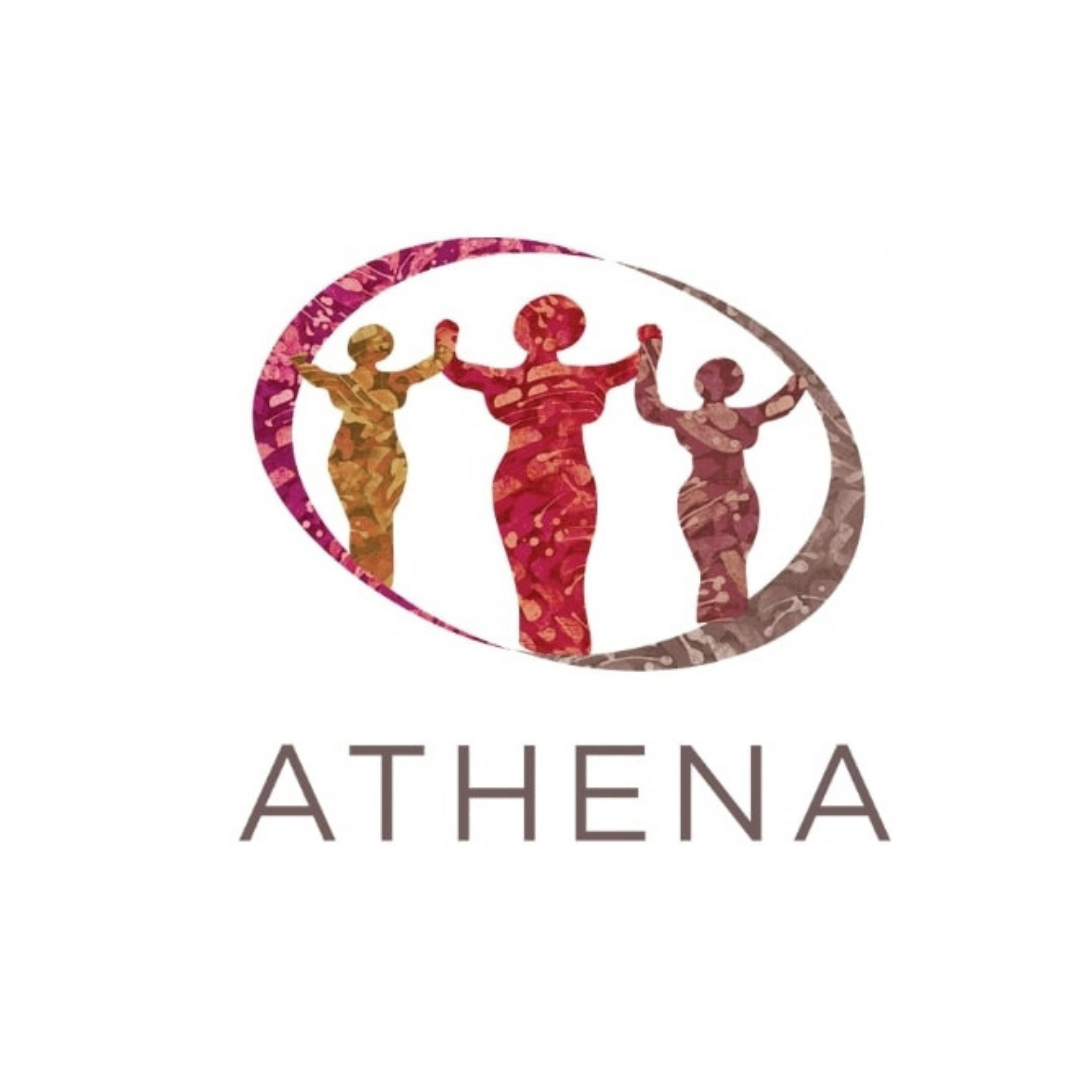 |
17. ATHENA Network, is a global feminist collective of individuals and organisations with a principled commitment to gender equality, gender equity, human rights, sexual and reproductive health, and an HIV response accountable to women and girls since 2006. |
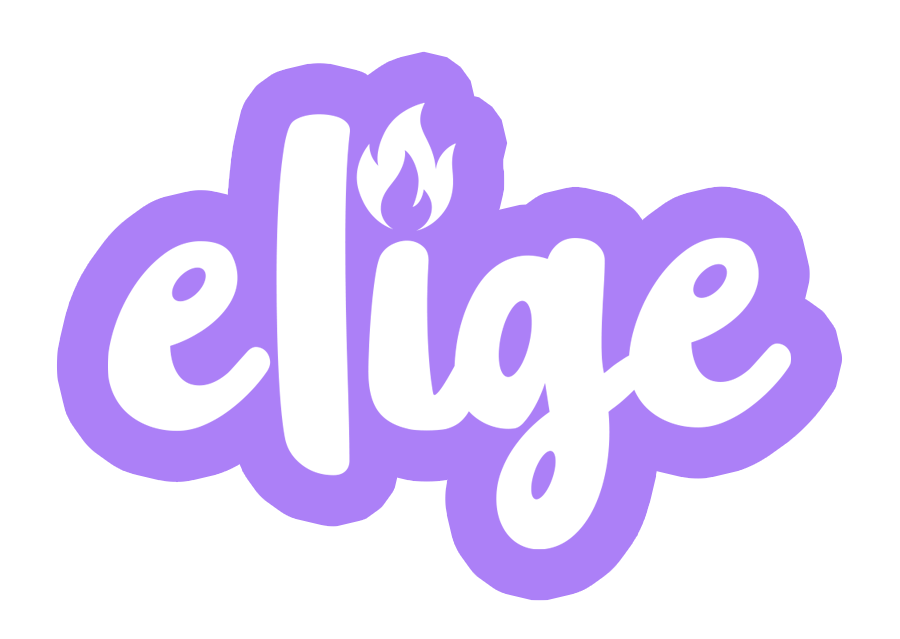 |
18. Elige Red, Mexico, are an organization of feminist youth that work on sexual rights and support the political participation of young people in Mexico, Latin America and the Caribbean. |
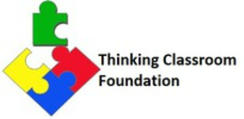 |
19. Thinking Classroom Foundation, Myanmar/Thailand, provides teacher education, critical thinking and curriculum development workshops. |
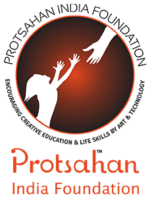 |
20. Protsahan, India, serves 81,000 girls facing exploitation and violence. They work hyper-locally in 68 underserved neighborhoods of New Delhi and provide safe spaces, educational sessions, and art-based gender justice workshops for 1000-1200 girls in their centres. |
|
|
21. Gender and Development for Cambodia (GADC), Cambodia, is a CSO that is constantly working to advance gender equality as a fundamental human right. One of their projects is the Teaching for Improved Gender Equality and Responsiveness (TIGER) consortium project, which is transforming the Teacher Education College (TEC) and 40 schools in Battambang province into centers of excellence for gender-responsiveness through capacity development, this project directly benefits around 2000 primary school students. |
|
|
22. Femmes, Actions et Développement (FAD), Niger, is a grassroots organisation formed by women for the protection and development of women and children. FAD advocates for qualified and competent teachers and safe schools. The main goal of a number of their projects is to contribute to keeping 5,000 girls in school until the age of 18. |
Selected Activists
|
|
1. Caryn Dasah, Cameroon, activist addressing education in emergencies |
|
|
2. Isabella Tello, Colombia, activist addressing education and climate justice |
|
|
3. Selin Ozunaldim, Turkey, gender and STEM activist |
|
|
4. Damien Baraka, Malawi, activist addressing education in emergencies |
|
|
5. Gregorius ‘Yoris’ Yoseph Laba, Indonesia, activist addressing education in emergencies |
|
|
6. Nhial Deng, South Sudan, activist addressing girls’ education in crisis |
|
|
7. Michelle Varaidzo Tarumbidzwa Chikurunhe, Zimbabwe, activist addressing education in emergencies |
|
|
8. Nataly Nicole Rivas Pincay, Ecuador, activist addressing education in emergencies |
|
|
9. Scott Marchack, Trinidad and Tobago, activist addressing SRGBV, CSE and mental health |
|
|
10. Laxmi, Nepal, activist addressing inclusive education for girls with disabilities |
|
|
11. Kadiatu Kargbo, Sierra Leone |
|
|
|
Global Feminist Coalition Guiding Group
